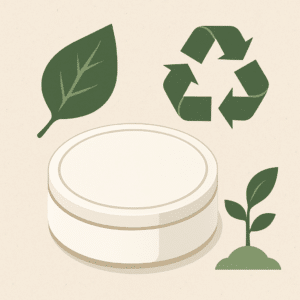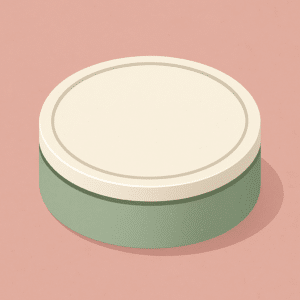Are ZYNs Biodegradable?
Introduction
As the popularity of nicotine pouches like ZYN continues to rise, so do concerns about their environmental footprint. A study by the Swedish Council for Information on Alcohol and Other Drugs NVC revealed that in 2024, 65% of snus litter collected consisted of tobacco-free nicotine pouches, highlighting the growing environmental impact of these products
This statistic underscores the importance of understanding the biodegradability of ZYN pouches and how to dispose of them responsibly. In this article, we’ll delve into what makes a product biodegradable, examine the components of ZYN pouches, and provide guidance on proper disposal methods to minimize environmental harm.
Read our guide: How To Use Nicotine Pouches
Are Zyns biodegradable?
The short answer is: no, ZYNs are not fully biodegradable. While ZYN pouches are made from plant-based fibers and seem natural, several ingredients and materials prevent them from breaking down completely in the environment.
According to multiple sources, including environmental studies and product breakdowns, ZYN pouches contain sweeteners like Sucralose and Acesulfame K, plus binding agents that do not dissolve easily in soil or water. Even though parts of the pouch — like cellulose and nicotine salts — might degrade over time, the entire pouch does not meet the standard definition of biodegradable.
It’s important to understand that ZYN is not the same as traditional snus. While snus is made from moist tobacco — a natural material that can decompose more readily — ZYN is a tobacco-free nicotine pouch. This means it relies on synthetic ingredients and stabilizers that extend shelf life but slow down biodegradability. In short, just because ZYN looks similar to snus, it doesn’t behave the same way in nature.
This leads us right to the next question: what does biodegradable mean?
Read our guide: Is Zyn Snus?
What does biodegradable mean?
Biodegradable refers to any material that can naturally decompose through the action of microorganisms, like bacteria or fungi, without leaving harmful residues behind. Basically, if you bury it in soil or leave it in water, it should break down into harmless components like carbon dioxide, water, and biomass within a reasonable period of time.
For a product to be truly biodegradable, all of its parts must decompose without synthetic chemicals lingering in the environment. Since ZYN pouches contain both natural (plant-based fibers) and synthetic elements (like sweeteners and binders), they don’t fully meet this definition.
What ZYN pouches are made of
Here’s a quick look at what’s inside a ZYN pouch:
- Nicotine Salt (biodegradable)
- Plant-Based Fibers (mostly biodegradable)
- Flavorings (food-grade, often biodegradable)
- Sodium Carbonate and Sodium Bicarbonate (dissolve naturally)
- Gum Arabic (natural and biodegradable)
- Sucralose and Acesulfame K (artificial sweeteners, not biodegradable)
The pouch casing itself, while made from natural fibers, is treated with binders to hold it together, which slows or blocks full decomposition.
Why ZYNs are not fully biodegradable
The main reasons ZYNs aren’t fully biodegradable are:
- Presence of non-biodegradable sweeteners.
- Use of plastic-like binding agents in the pouch casing.
- Slow decomposition even of biodegradable components due to manufacturing treatments.
So, while ZYNs are better for the environment compared to cigarettes or disposable vapes, they still aren’t perfect.
Do Zyns dissolve?
You might be thinking: if ZYNs aren’t fully biodegradable, do they at least dissolve? Let’s dive into that.
Which parts of ZYNs dissolve naturally
The nicotine salts and sodium-based ingredients inside the pouch dissolve quite easily. When placed in moist conditions, the inner contents break down over time. This is why the pouch feels softer and smaller after use.
However, the outer pouch casing — the part you can touch — is much more durable. It doesn’t dissolve quickly in soil or water. Instead, it tends to harden like cardboard if left in moist conditions.
Environmental impact of undissolved ingredients
Because the casing doesn’t fully dissolve, used ZYNs can persist in the environment if not disposed of properly. In particular:
- Sweeteners like Sucralose don’t break down and can contaminate water sources.
- Pouch fibers could accumulate in soil and waterways over time.
- Wildlife and pets might mistake the pouch for food, leading to accidental poisoning.
This highlights why correct disposal matters so much.
Why ZYNs don’t decompose like organic materials
ZYNs don’t decompose like an apple core or banana peel because they are engineered for durability. The added binders and processing steps make them resistant to natural breakdown, ensuring they hold up while being used but unfortunately persisting after disposal.
How to properly dispose of Zyn pouches
Given all this, you might wonder: what’s the right way to get rid of your used ZYNs?
Using the catch lid and waste compartments
Most ZYN cans come with a built-in catch lid — a small compartment at the top designed for temporary storage of used pouches. When you’re done with a pouch, just pop it into the catch lid.
Why you can’t flush or compost ZYN pouches
It’s crucial not to flush used pouches down the toilet or toss them in a compost bin. Here’s why:
- Flushing can release nicotine and sweeteners into waterways, harming aquatic life.
- Composting doesn’t work because artificial ingredients prevent full decomposition and could contaminate your compost heap.
According to the EPA, nicotine waste is classified as hazardous — it must be managed carefully.
Hazards of improper disposal for children, pets, and wildlife
Used ZYN pouches still contain residual nicotine, making them dangerous for pets, wildlife, and children if accidentally swallowed. Even small amounts of leftover nicotine can cause poisoning.
Always dispose of ZYN pouches in the trash, inside a sealed container if possible.
Can you recycle Zyn cans?
Good news here: Yes, you can recycle ZYN cans!
What ZYN cans are made of
ZYN cans are made primarily from recyclable plastic (polypropylene). Once you’ve removed all used pouches, you can toss the empty can into your household recycling bin, depending on your local recycling rules.
How to recycle ZYN cans correctly
To recycle a ZYN can:
- Empty it completely — no used pouches left inside.
- Rinse it quickly if needed (especially if odors persist).
- Place it in your plastics recycling bin.
This step helps minimize waste and supports a more circular economy.
Environmental impact of ZYN compared to cigarettes and vapes
Let’s put everything into perspective.
ZYN vs Cigarette litter and pollution
Cigarettes are disastrous for the environment:
- 4.5 trillion cigarette butts are littered each year globally.
- Filters made of cellulose acetate take decades to decompose.
In contrast, ZYNs don’t produce smoke, and if properly disposed of, generate far less long-term litter.
ZYN vs Disposable and reusable vapes
Disposable vapes contribute heavily to electronic waste (e-waste), since they contain batteries, plastics, and heavy metals that are difficult to recycle. Even reusable vapes, while slightly better, still create a significant carbon footprint due to battery production, frequent charging, and replacement parts over time.
ZYN pouches completely sidestep these issues — no batteries, no complex electronics — just a simple pouch and a recyclable can. With a wide range of ZYN flavors available, from mint to citrus to coffee, users get a cleaner nicotine experience without adding to the growing problem of e-waste. It’s also worth mentioning that the recent ZYN shortage in some markets has only highlighted how popular these tobacco-free pouches have become as an alternative to traditional vaping, especially among environmentally conscious users.
Read our guide: Black Cherry Zyn – What Is The Hype?
Overall carbon footprint of ZYN nicotine pouches
While the production of ZYN pouches still uses energy and resources, their carbon footprint is significantly lower than cigarettes or vapes. Plus, Swedish production often relies on renewable energy, further reducing their environmental impact.
Are ZYNs environmentally friendly?
Pros and cons of ZYNs for the environment
Pros:
- No smoke or secondhand emissions.
- Lower litter footprint than cigarettes.
- Recyclable plastic cans.
Cons:
- Pouches are not fully biodegradable.
- Improper disposal can still harm ecosystems.
Future improvements for sustainable nicotine pouches
To truly become eco-friendly, companies like ZYN need to:
- Eliminate synthetic sweeteners.
- Use fully biodegradable binders.
- Innovate packaging with compostable materials.
Brands like VELO and ON! are also working on eco-initiatives, so the future looks promising.
Nicotine Pouch Brands with a Focus on Cleaner Ingredients
While ZYN is one of the most recognized names in the nicotine pouch market, several other brands have positioned themselves as offering products with a focus on plant-based fibers, natural flavorings, and more conscious production methods.
Although these claims are primarily based on brand marketing rather than third-party scientific studies, they reflect a broader trend toward simpler, less synthetic formulations in the nicotine pouch industry.
Here are a few nicotine pouch brands that highlight a cleaner ingredient approach:
-
White Fox: Known for its high-purity nicotine and minimal use of additives, focusing on delivering a clean, cooling experience.
-
White Gold: Emphasizes smooth flavors and the use of plant-based pouch materials, aiming for a more natural feel.
-
Helwit: Markets itself as eco-conscious, using recyclable cans and working toward sustainable production methods.
-
Kelly White: Offers premium pouches that prioritize clean flavors and a simplified ingredient list.
-
XPCT: Focuses on bold flavor delivery while keeping pouch materials and flavor formulations straightforward and plant-based.
-
Loop: Highlights the use of FSC-certified packaging and plant-based ingredients, supporting a more sustainable nicotine pouch offering.
While none of these brands are fully biodegradable yet, their focus on natural fibers and recyclable packaging shows a step in a more environmentally responsible direction. As always, proper disposal and recycling are key to minimizing the environmental impact, no matter which brand you choose.
Conclusion
So, are ZYNs biodegradable? Based on real evidence, the answer is clear: ZYN pouches are not fully biodegradable. While they are made with some plant-based fibers that can eventually break down, other ingredients like artificial sweeteners and binder agents prevent full decomposition. In short, they don’t naturally return to the environment the way truly biodegradable materials do.
Even though ZYNs don’t produce smoke or the kind of heavy litter associated with cigarettes and vapes, they still need to be disposed of responsibly. Using the catch lid for temporary storage, sealing used pouches in a container, and taking them to a hazardous waste facility is the best way to protect wildlife, waterways, and communities.
On the bright side, ZYN cans are recyclable, and compared to cigarettes and single-use vapes, nicotine pouches offer a significantly lower environmental impact — especially when users handle their waste carefully.
At the end of the day, switching to ZYNs might be a step toward a cleaner alternative, but it’s not a free pass. Being mindful about how we use and dispose of nicotine products is what really makes the difference for the planet.






